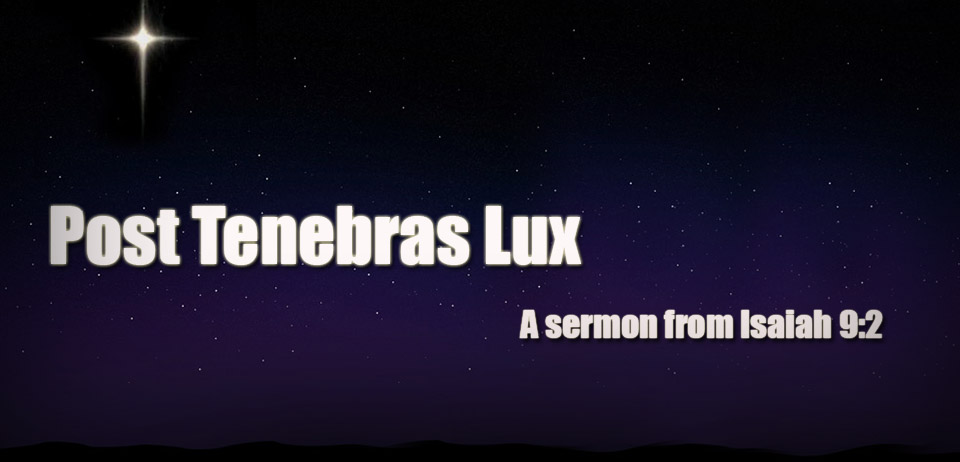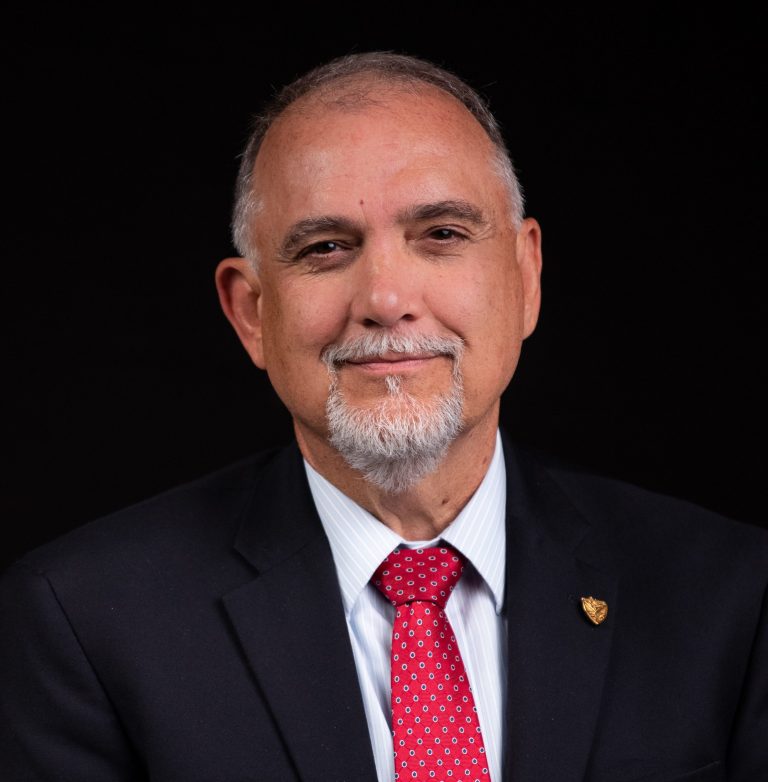Pastor Tom Ascol exposits Isaiah 9:2 in a message entitled “Post Tenebras Lux” (After Darkness Light). This saying, a motto of the Reformation in the 16th century, was used to illustrate God’s gracious revealing of the true Gospel after centuries of corruption. Rather than a gospel of works or a gospel only available through the offices of a church, the Reformation made plain once again a gospel of grace through faith.
The coming of Jesus Christ also presents a light after darkness. This coming, 750 years previously, had been prophesied by Isaiah. Today’s verse, “The people who walked in darkness have seen great light; those who dwelt in a land of deep darkness, on them has light shone,” teaches the truth of Jesus as light. Isaiah ministered in a spiritually dark time. For example, God’s administration of loving discipline toward His people had resulted in the northern kingdom of Israel having been overthrown by the Assyrians. Isaiah ministered to the southern kingdom of Judah alerting them that their own discipline was likewise threatened. Three insights are offered by Isaiah’s teaching of what God was going to do for and to His people
First, spiritual darkness is both penetrating and pervasive. Isaiah uses two different words for darkness in this verse, the second emphasizing the utter darkness of those in rebellion against God. The pervasiveness is shown by Isaiah’s use of ‘walking’ and ‘dwelling’; the darkness is just a way of life for these people. There is no searching of God’s Word. Rather, human wisdom is the basis for life and decisions.
Second, spiritual light is both subjective and objective. Objectively, according to our verse, light has come. But, light does not mean anything to a blind person. Still, God subjectively applies light; individuals come to see it. Current application should be apparent. Jesus, the Light of the world has come. Only God can apply His coming to our hearts. The question for people today is, “Have you received Him, have you taken the Light to yourself?”
The third insight is that God will cause spiritual light to dispel spiritual darkness. Though Isaiah spoke to his contemporaries he was also prophesying about the coming of the Lord. There is a future certainty to the hope of a coming light. God will do it! This is the whole story of the Bible. From the falling of darkness in Adam and Eve’s sin and the Lord’s subsequent promise of salvation God has been working through history. Just as Israel had no power to free themselves from the dominion of Egypt so man needs salvation from the dominion of sin. The sending of the Savior, while in one sense representing the culmination of God’s work of reconciliation, provides the shining forth of the Light in the church age.
For believers the best is yet to come, eternal joy in the presence of God. For the unbeliever the call is to respond to the only Light which can dispel the spiritual, Jesus Christ the Savior.























